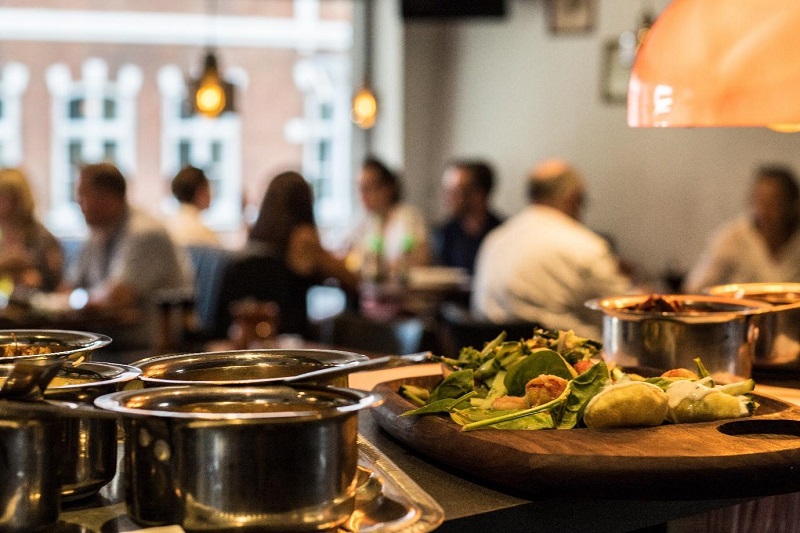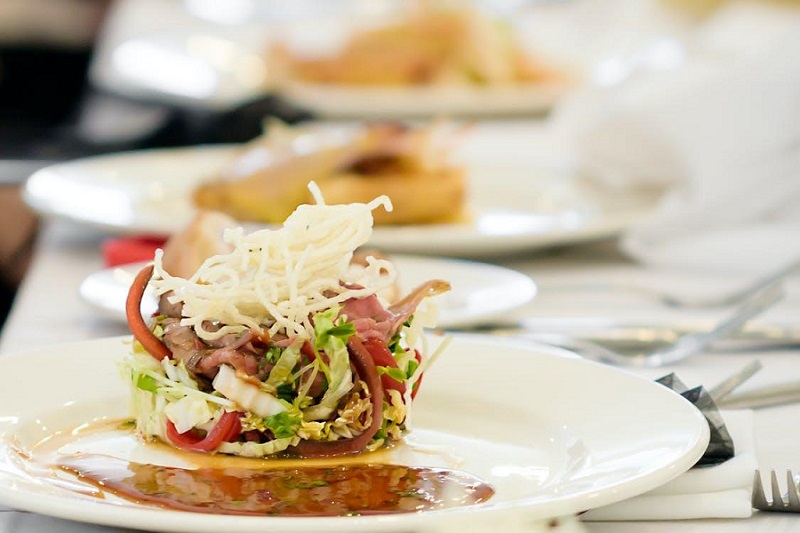
There’s a perfect storm impacting the hospitality industry that has led to more restaurants and eateries launching their own websites than ever before. Sure, there is an ecosystem – social media, TripAdvisor, food delivery apps – that supports restaurants without websites. But increasingly, factors like the Covid-19 pandemic, which caused online ordering to surge to unprecedented levels, and growing dissatisfaction around food delivery companies have caused many restaurant businesses to take the plunge into launching their own digital platforms. It allows them to take control of their own business without being affected by third parties. Additionally, it provides afoundation, a digital footprint as the hospitality industry evolves.
Thankfully, creating a website – or even an app – for your restaurant has never been easier with a website builder. There are, of course, decisions to make. You’ll need to choose the right template for your website or app, although top website builders will offer a ton of options that suit the restaurant industry. You’ll also have to decide on aspects such as functionality. Do you, for example, want a website that can facilitate bookings? Or one that allows customers to make direct payments? Increasingly, these solutions need to be added. Good restaurant websites are no longer static web pages that act as a company listings guide. In fact, some are extensions of the dining experience, starting the customer journey before they eat as much as a mouthful.
So, where to begin? Your first consideration should be how you are going to build it. You can, of course, get a customized website built by a company. But that’s likely to be very expensive. Most restaurants are going to opt for a website builder, particularly one of the big brands like Wix. The good news is that many of the best website-building solutions have pushed the boat out to allow anyone to create a customized website. And with such a huge focus on hospitality going digital, given the reasons we outlined earlier, there are a plethora of choices for restaurants.

Choosing a design template for your website
Once you have selected your website builder, you will then be given a choice of templates. Normally, this is organized by industry, so you’ll have no problem finding the right one for your restaurant. The options are also categorized by type of restaurant, so you’ll be able to choose accordingly if, for example, your establishment offers fast food or high-end Italian cuisine.
The choice you make is important, and we should stress that it is going to be the first thing your customer notices about your business, so you shouldn’t think that just anything will do. Take the time to choose the right template, then customize it if necessary. You want your customers to be wowed by the design of your website, in much the same way as you’d want them to be impressed by the design of your restaurant.
Adding tools and functionality
Next, it’s about weighing up what you want your website to offer. A lot of restaurants are opting to add booking facilities (sometimes managed by third parties) and the option of payments. Even if you are not doing food deliveries, which ensures the need for payment facilities, some restaurants will have them to allow customers to do stuff like pay a deposit or even buy branded restaurant merchandise.
The best website builders will offer tools that go beyond the typical shopping carts and booking systems, and that will include tools for ordering from your menu. As we mentioned earlier, many eateries are somewhat fed up with the fees charged by companies like GrubHub and Uber Eats, so these tools can help you cut out the middleman. Some website builders are promoting the fact that restauranteurs will never have to pay commissions if they have their own website, so you can understand the attraction.
Promoting the business
Once your website is up and running, the next step is about promoting your business. Again, good website builders will offer marketing tools as part of your package. This can range from email marketing to the production of videos for your website. It will also involve the use of SEO to help with Google page rankings. The latter is important, of course: If someone is searching Google for a Japanese restaurant in San Francisco and you own a Sushi restaurant in the Bay Area, you’ll want to be appearing prominently on Google’s results. Other promotion tools like the ability to send out promo codes and special offers can also help.

Conclusion: Worth the time and effort?
As mentioned in the beginning, many restaurants have a digital footprint without actually having a website. Some business owners might be happy with a Facebook page or a listing on GrubHub. Yet, a website can add a sense of legitimacy and professionalism to your restaurant, instilling a sense of trust in the customer before they walk through the door. If it is promoted in the right way using all the tools offered to you by a website builder, it’s almost guaranteed to boost sales. And the fact that you won’t be beholden to a third party for commissions means potentially more profits. So, if you have the opportunity to build your restaurant website, it’s a no-brainer.






